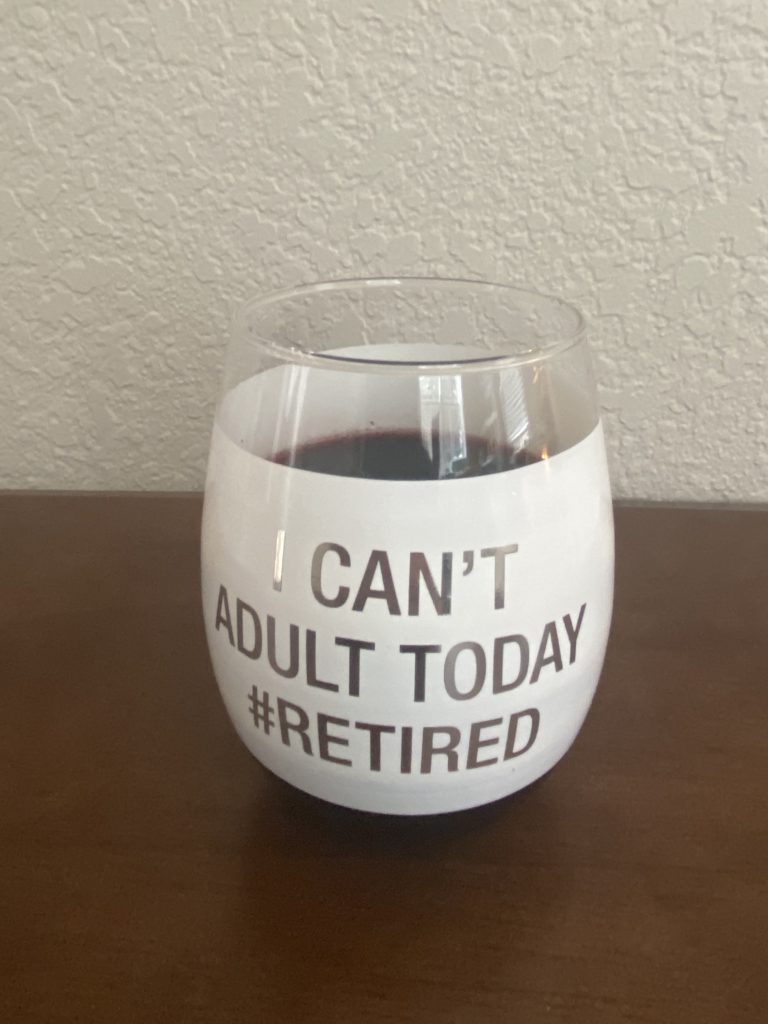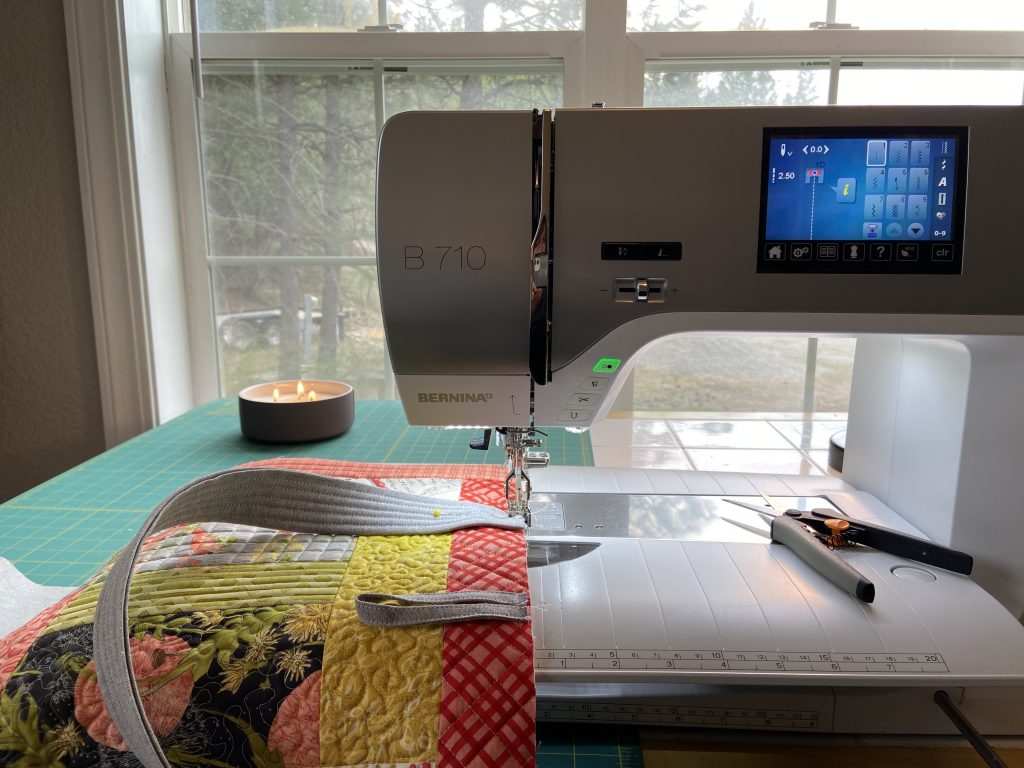
When, exactly, does working in retirement become employed and not retired? That is the question I asked myself when I agreed to teach a class at our local college. After all, I can’t be “working” when I am writing a blog about retirement, can I? Why would I agree to do that, even if it is only one evening a week, when I really enjoy the freedom of retirement? In other words, what in the hell was I thinking?
Many retirees still do some paid work in retirement. Seniorliving.org states that 27% of retirees said they are retired, even though they still worked some. According to Eric Weigel, in his book Reimaging Retirement, 2/3’s of retirees go back to work. If you are receiving Social Security, there are some limits on how much you can earn from work and still receive benefits. Apparently, they consider working in retirement not fully retired. So, my question is, are we truly retired if we are still working part-time? Where is the line?
First, let’s take a look at what draws people to return to work after retiring; a time of life that most have looked forward to for years. Why even retire in the first place? I did a little research about what people missed most about work. The top six items that show up consistently include:
- Daily social interactions
- Paycheck and benefits
- Being productive
- Structure
- Having a purpose
- Mental stimulation
I would argue that if we plan and prepare (both financially and emotionally) we can incorporate all of the above items into retirement. We just have to determine how we are going to address them and then transform our career into a retirement lifestyle that we love to live. That is what this blog is about. Many retirees find volunteering a great avenue to fulfill some aspects of what work provided. However, for purposes of this post, I am just focusing on paid work.
Like most people, I spent a lot of blood sweat and tears on my career. I used up way too many years of my life in college getting my initial degree and then a master’s degree in nursing education. It would be hard to give up my RN license. It feels like a part of my identity. And in order to maintain my license I need to stay engaged in the profession. Therein lies the rub.


just prior to retiring.
If there are so many aspects of work that people like, why retire? Typically, it is not the work itself that pushes people to want to retire. It is all of the aspects that surround employment. The top four reasons people decide to retire include:
- The commute
- The hours it takes out of our lives that we want to use doing what we enjoy
- Having to answer to someone else’s expectations
- The stress associated with working
Despite these frustrations associated with work, many people of retirement age continue to work because they don’t have anything else they would rather do. But what if you could work without any of these constraints that are typically a part of paid employment? What if you could work for yourself at something you love to do? This might include being a writer or artist or making crafts that you sell. You are not doing it because you need the money to survive in retirement; it is something you choose to do to enhance your retirement lifestyle AND it does not interfere with the other things you love about retirement. Some aspects of retirement that people enjoy the most include:
- Slower mornings (no alarm clock or frustrating commute)
- Freedom of schedule (you can do what you want, when you want)
- Less stress (not answering to a boss, no performance reviews or reports)
- More time to stay connected to family and friends
- Able to be more spontaneous
Things I would rather be doing than working




Maybe the answer has more to do with the intent behind the choice. Many retirees are working to supplement their retirement lifestyle. According to a 2022 survey by the Employee Benefit Research Institute, “More than 1 in 4 retirees say they are spending more than they can afford.” If we follow this philosophy of intent and you are working at something you do not particularly enjoy because you have to support your retirement, then you are really still working and not retired. Even if it is only part-time. However, if you happen to get paid for something you really enjoy doing in retirement, and it does not take away from what you love about being retired, then you are honestly retired. Some examples of this might include:
- Sitting on a paid board
- Teaching a college class once a week
- Substitute teaching
- Driving a bus or van for a company a couple days/week
- Starting your own business
- Selling garden produce at the local summer market
- Selling your art at a gallery
- Working at the local library one day/week
- Writing a book
- Opening an Etsy store to sell your crafts
- An accountant picking up online work during tax season
Back to my dilemma. I really liked my previous career and I always thought I would do a little paid work in my field to round out my retirement lifestyle. But, as I was spending my precious time prepping to teach this course, I realized that I would much rather spend that time drafting a new blog post. I just taught my first class a few days ago. I was on my feet lecturing for four hours straight. Afterwards I was exhausted, my voice was strained and my feet hurt. (Can you hear the whining in my words?) My brain felt sharp and up for the task, but my body… not so much. The evening class ended at 9:00 p.m. Afterwards, when I just wanted to go home and put my feet up, some zealous student stayed awhile to visit. By the time I left the building, it was 9:30 at night and snowing. Heck, I am seldom out past 9:00 p.m. (Please tell me I am not alone in this.)
Things I enjoyed about this part-time job:
- I enjoyed the students and being engaged with others.
- It was satisfying to teach and contribute to the greater good.
- I enjoyed being able to use my professional skills again and there is satisfaction in getting paid for that.
Things I did not like about this part-time job, or why it smells suspiciously of work:
- It commits me to a schedule that I have to plan my activities and travel around. Or, horror of horrors, have to request time off for a vacation.
- It takes a lot more than 4 hours/week when you include prep time and commuting. This is precious time and energy that I would rather spend doing something I enjoy more.
- I still don’t like a commute. Especially at night.
- It is physically exhausting to teach for 4 hours straight and my body rebels more than it used to.
- The small amount of money I made from it did not even come close to compensating for the time investment. But then, I did not choose to do it for the money.
So, there you have it, 3 reasons I enjoyed my part-time work stint and 5 reasons I did not. Pretty simple math. However, the verdict is still out for me. I will finish this course and then decide. I am curious what other retirees think. Is there a continuum of work that determines when you are working versus retired? Where is that line?
I think that Mr. U. summed it up well after he retired from his position as a Highschool Principal. People frequently asked him if he missed it and he promptly replied, “Do I miss it? Yes. Would I go back to it? Not a chance.”







IMO, choice is a defining factor. To work or not to work? You get to decide. I also think we need to explore our definition of work. I still work with a mission statement of – to look after myself and my property. Barbara de Angelis in Real Moments says – “Your job is what you do to survive physically & to support yourself… Your work is what you do to survive emotionally & to support your spirit…Receiving money for what you do is not a validation that you are living your Purpose & doing your real Work…receiving joy & contentment is.” There’s a lot of responsibility in managing time in retirement, doing time so time doesn’t do you. Appointments can ground the week making free time so much more delicious.
Hi Mona –
You bring up so many good points. I totally agree that much of the “work” we do in life is not paid work. I loved your last comment. We do appreciate our free time more if we have appointments to ground the week. It is still a challenge for me to find that elusive balance though, as I try to cram too much into a week and do not get enough “delicious” free time. I suppose that is partly why adding this class feels like a burden instead of a pleasure. Thanks so much for sharing your thoughts on this topic.
A thought provoking article and great follow up by Mona. I, too, took on teaching 3 credits this semester (one 1-credit course and one 2-credit course). However, both courses I am teaching are fully online, which gives me more flexibility but less meaningful student interaction. I am enjoying the experience and improving the companion Canvas course sites. The little extra spending money is nice to help fund my hobbies especially since I haven’t started collecting SS yet.
Hi Sue –
Teaching online is a great way to stay engaged with your profession while maintaining flexibility. You are getting many of the benefits that people enjoy about work without the added frustrations. A little extra play money to help “fund” hobbies is always nice to have: gotta pay for all that yarn!
I can relate to all six of your reasons as to why retired people go back to work. I am continuing to substitute, teach, usually only one day a week at the same school. It’s too good of a deal for me; I get to decide when I work and how much I want to work so it’s a really good deal for me. I don’t envy you commuting in the snow at night, but my morning commute this morning was in the snow in the dark! It’s all still worth it though
Hi Robin –
It sounds like you have found a perfect way to balance out your retirement lifestyle without the many frustrations of full-time employment, well…except the snowy commute in the dark. From my own anecdotal research, the number one reason retirees do not want to work part-time is because of the schedule commitments. It takes away their flexibility. Substituting is a great alternative that still allows you to control your schedule.